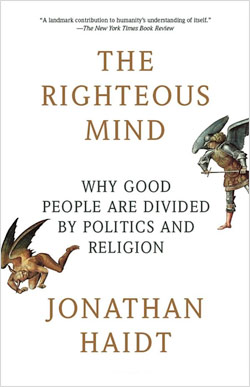Featured Book
The Righteous Mind
Why Good People Are Divided by Politics and Religion
We are without doubt living in an era of polarised thinking, marked by much bickering across social and political lines. But could positions of both sides have roots in common moral foundations?
Although the tendency for humans to sort themselves along ideological divides is nothing new, there is a pernicious fervour that infuses public debate today. By providing a platform for anyone to share their opinions, the internet has helped stoke a cacophony reminiscent of the Tower of Babel, where the standard bearers of every social, political, religious and philosophical viewpoint is represented. Too often the result is a collision of paramount and inviolable ideas. The American political system, long burdened by its dualistic and argumentative culture, is now hobbled by this increasingly inflexible state of debate.
Jonathan Haidt, an American social psychologist, addresses this in his book The Righteous Mind – a rare and powerful work, first published in 2012, that shatters our assumptions about how and why we embrace the ideas we champion. Haidt demonstrates that our moral values – and the various political orientations and religions that manifest them – are not governed, as we like to think, by our intellect and reason but by self-serving mental processes outside our awareness. We take and hold the positions we do because of deeply intuitive reflexes rooted in our evolutionary past. When we argue our political outlook with others we are merely rationalising it post facto. Good reasoners, Haidt writes, are “really good at one thing: finding evidence to support the position he or she already holds, usually for intuitive reasons.”
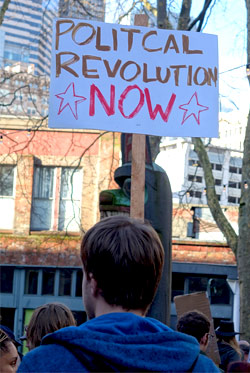
What determines whether we fall more or less on the right, or left, on the political spectrum is the extent to which we are influenced by any of these ancient tendencies, or “moral foundations”, as Haidt calls them. They are innate imperatives – attitudes and certain behaviours – once linked to success and survival over millions of years. A person holding conservative viewpoints, who is highly patriotic and is an unquestioning supporter of the military, but who is against immigration and social welfare is acting on such compulsions. The absolute necessity of tribal cohesion in ancient times drives his or her patriotism and loyalty towards the flag and military. The human evolutionary impulse to preserve group sanctity (and avoid despoilment) such as avoiding toxins, infectious people, and dubious outsiders drives his or her negative reflexes towards immigration. Meanwhile, our instinct for fairness and the need to stop cheaters, slackers and freeloaders in the tribe compels the conservative view-holder to frown upon social safety nets which can be abused to the detriment of society.
A liberal who believes in protecting the environment and curbing the sometimes unchecked powers of corporate interests may be impacted by the same moral foundations, but these are seen differently owing to that person’s upbringing and personal dispositions. For instance, championing clean air and water from an environmental perspective is rooted in the same impulse towards sanctity and away from degradation that compels the conservative to frown upon immigrants. The desire to limit powerful corporate influence and privilege stems from the instinct to uphold fairness that drives the conservative to oppose the welfare state.
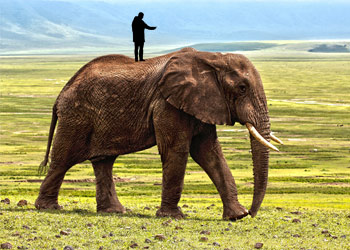
Haidt outlines several such moral foundations. He likens each person’s constellation of them to an elephant, and our logical capacity as the animal’s rider who can seldom, if ever, completely control the beast. Intuitions have a mind and will of their own. This is evidenced by the fact that so much argument between opposing sides in a debate results in so little conciliation or synthesis. Riders are addressing each other’s rationalising faculty, and not, instead, the other’s elephants.
Exceptionally well-researched and written works about our unconscious motivations, like the The Righteous Mind, should be required reading for all. Given the polemics of our age, individuals, collectives and society in general would benefit from digesting Haidt’s findings. The book can help us become less automatic and more self-directed in our thinking and behaviour, and increasingly effective in the way we share ideas.
Haidt shows us that if you want another party to seriously consider your view point, you should avoid confrontation and rational arguments, and engage in friendly, emotionally compelling talk that speaks to the other person’s intuition – their elephant. He reminds us that political parties to some degree already know that, and have for a long time been addressing our innate predispositions to sign us up for their cause. “Political parties and interest groups strive to make their concerns become current triggers of your moral modules,” he writes. “To get your vote, your money, or your time, they must activate at least one of your moral foundations.” If we are to free ourselves from one aspect of political manipulation, we have to see and acknowledge our susceptibility in this regard.

The information contained in The Righteous Mind can also make us less polarised in our conversations with one another. By understanding that we are all similarly motivated below awareness, we might learn to be less judgemental of others whose ideas seem otherwise inexplicable and alien to us. Political disagreement can become less of a personal affront; and those holding opposing views less blameworthy. We might even look at some moments in history, like the Brexit Movement, or the election of Donald Trump, and see, first and foremost, the deeper influencing matrices of our nature – something we all share in common – at work.
Haidt tell us in his last chapter that humans are groupish animals that “construct moral communities out of shared norms, institutions, and gods” which they fight and die to defend. Given that, we may have no choice but to better understand why we think and behave the way we do, rather than just react reflexively to one another. If this is one key to averting deeper chaos, we might eventually learn to create a more effective politics in which our innate leanings translate to more evenhanded governing philosophies. For any one group to suddenly or irrevocably change a society’s balance of moral capital – the ground on which our various elephants can calmly tread – is to court the troubles that we are now seeing.
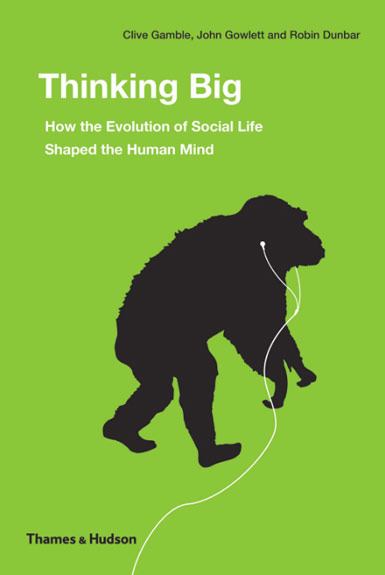
Thinking Big
How the Evolution of Social Life Shaped the Human Mind
Robin Dunbar, Clive Gamble & John Gowlett
The social brain that drives our behavior and contemporary culture is essentially the same brain that appeared with the earliest humans some 300,000 years ago.
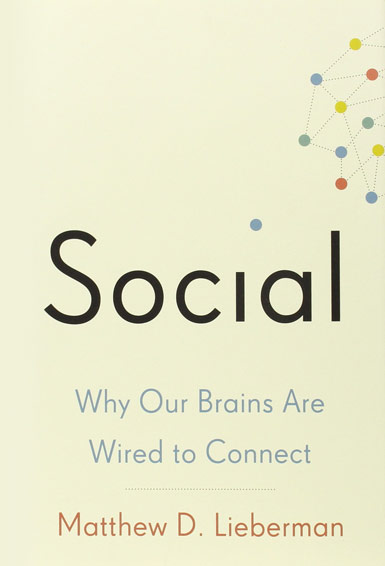
Social: Why Our Brains are Wired to Connect
Matthew D. Lieberman
Explore the groundbreaking research in social neuroscience revealing that our need to connect with other people is even more fundamental, more basic, than our need for food or shelter. Because of this, our brain uses its spare time to learn about the social world – other people and our relation to them.
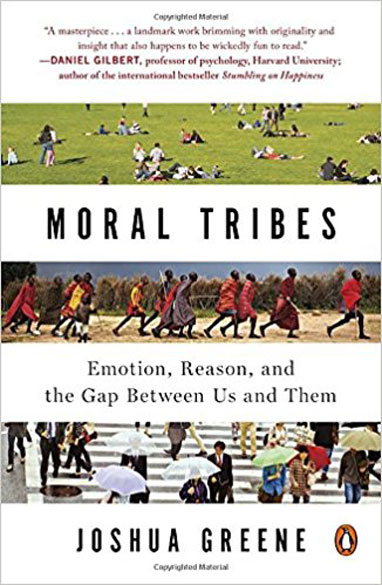
Moral Tribes
Emotion, Reason, and the Gap Between Us and Them
Joshua D. Greene
Our innate moral behavior evolved over millions of years to promote cooperation within our group. Each group has its own moral code, which provides a map for how individuals can live successfully within it. Our other innate tendency, to favor our group over all others, is something we need to understand and mitigate to address the existential challenges of our modern global society.

The Mountain People
Colin Turnbull
The story of the IK tribe of northeastern Uganda is a classic study of how a society’s concept of fairness and justice can quickly devolve when its people are cut off from their accustomed means of livelihood and forced to compete for their very survival.
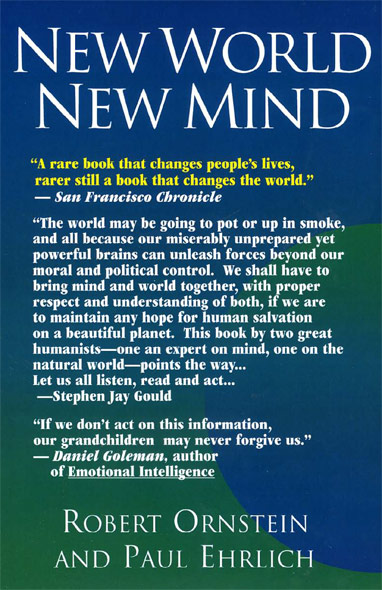
New World New Mind
Moving Toward Conscious Evolution
Robert Ornstein and Paul Ehrlich
Over millions of years, our minds evolved with quick reflexes to deal with sudden threats, which makes long-term threats like pollution and overpopulation invisible to us. Our survival now requires that we consciously evolve a new mind and new perceptions to adapt.
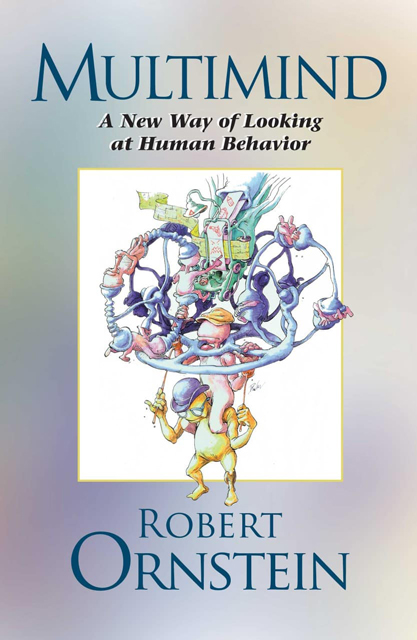
Multimind: A New Way of Looking at Human Behavior
This provocative book challenges the most-popularly held conceptions of who we are. In it, psychologist and renowned brain expert Robert Ornstein (1942 – 2018) shows that, contrary to popular and deep-rooted belief, the human mind is not one unified entity but, rather, is multiple in nature and is designed to carry out various programs at the same time.
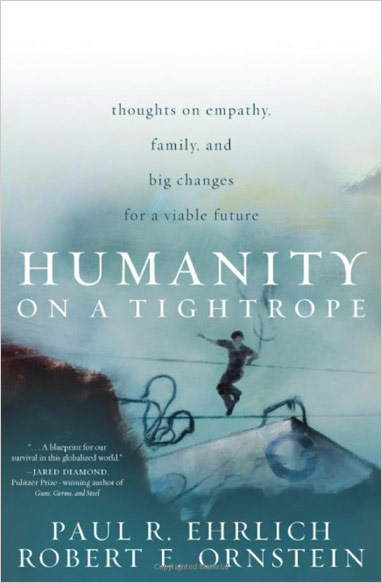
Humanity on a Tightrope
Paul Ehrlich & Robert Ornstein
Psychologist Robert Ornstein and biologist Paul Ehrlich join forces to explain why the human race has reached its current perilous precipice. To sidestep the fate they say is now barreling towards us will require us to address our “empathy shortfall.”
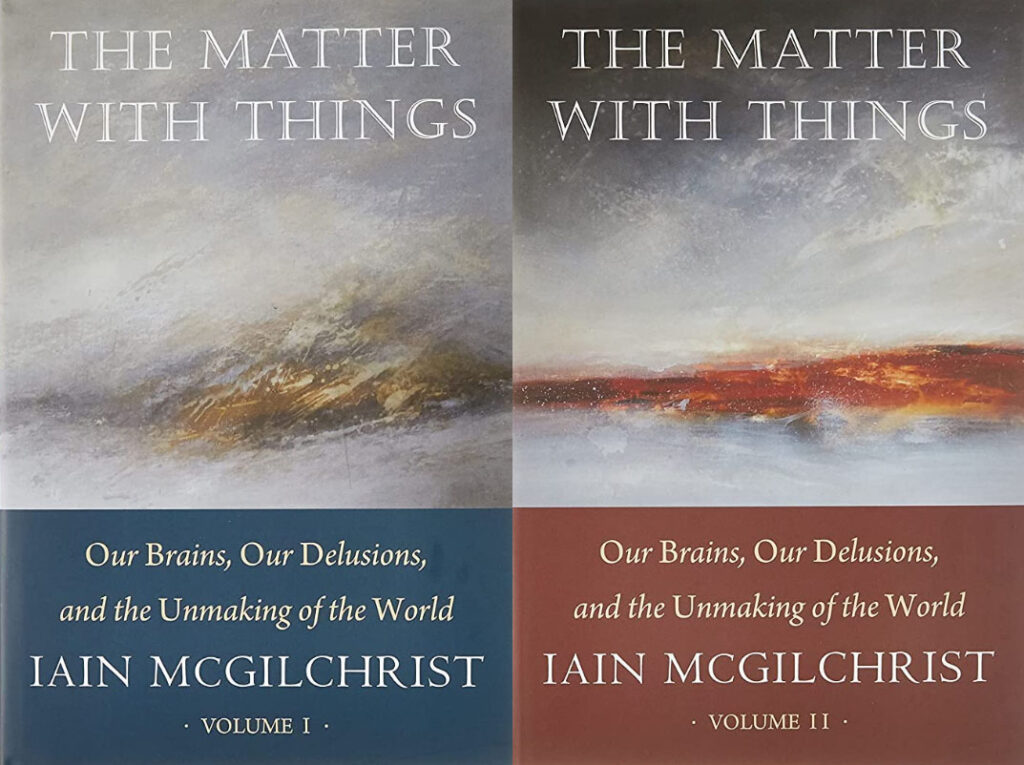
The Matter with Things
Iain McGilchrist
One of McGilchrist’s central points is that our society is one in which we rely on representations of the world as our way of knowing it. Scientific theories expressed in mathematical form, economic models, photographs – all re-present the reality they purport to describe.
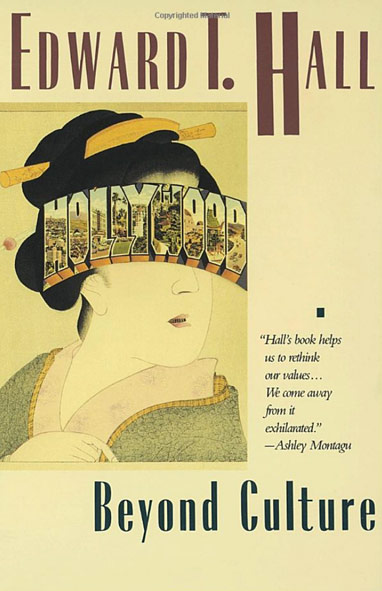
Beyond Culture:
Edward T. Hall and Our Hidden Culture
Report by John Zada
Edward T. Hall, after spending his early adulthood working and travelling among non-Anglophones, both in the United States and in other parts of the world, became cognizant and fascinated in the deeper layers of culture that he claimed lie buried beneath those more obvious forms.
In the series: Intercultural Understanding and Empathy
Further Reading
External Stories and Videos
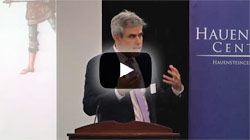
Watch: Jonathan Haidt – The Righteous Mind: Why Good People are Divided by Politics and Religion
Jonathan Haidt Hauenstein Center Talk
Why can’t our political leaders work together as threats loom and problems mount? Why do people so readily assume the worst about the motives of their fellow citizens? In The Righteous Mind, social psychologist Jonathan Haidt explores the origins of our divisions and points the way forward to mutual understanding.

